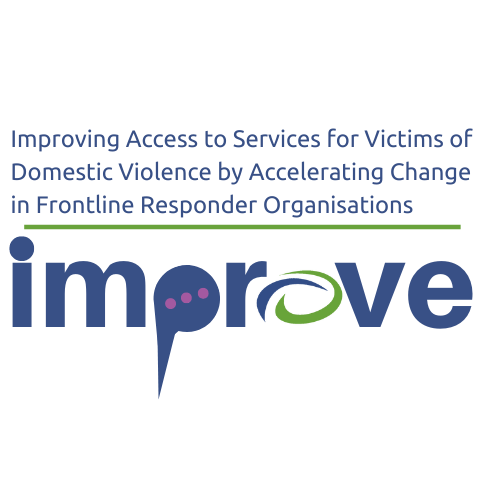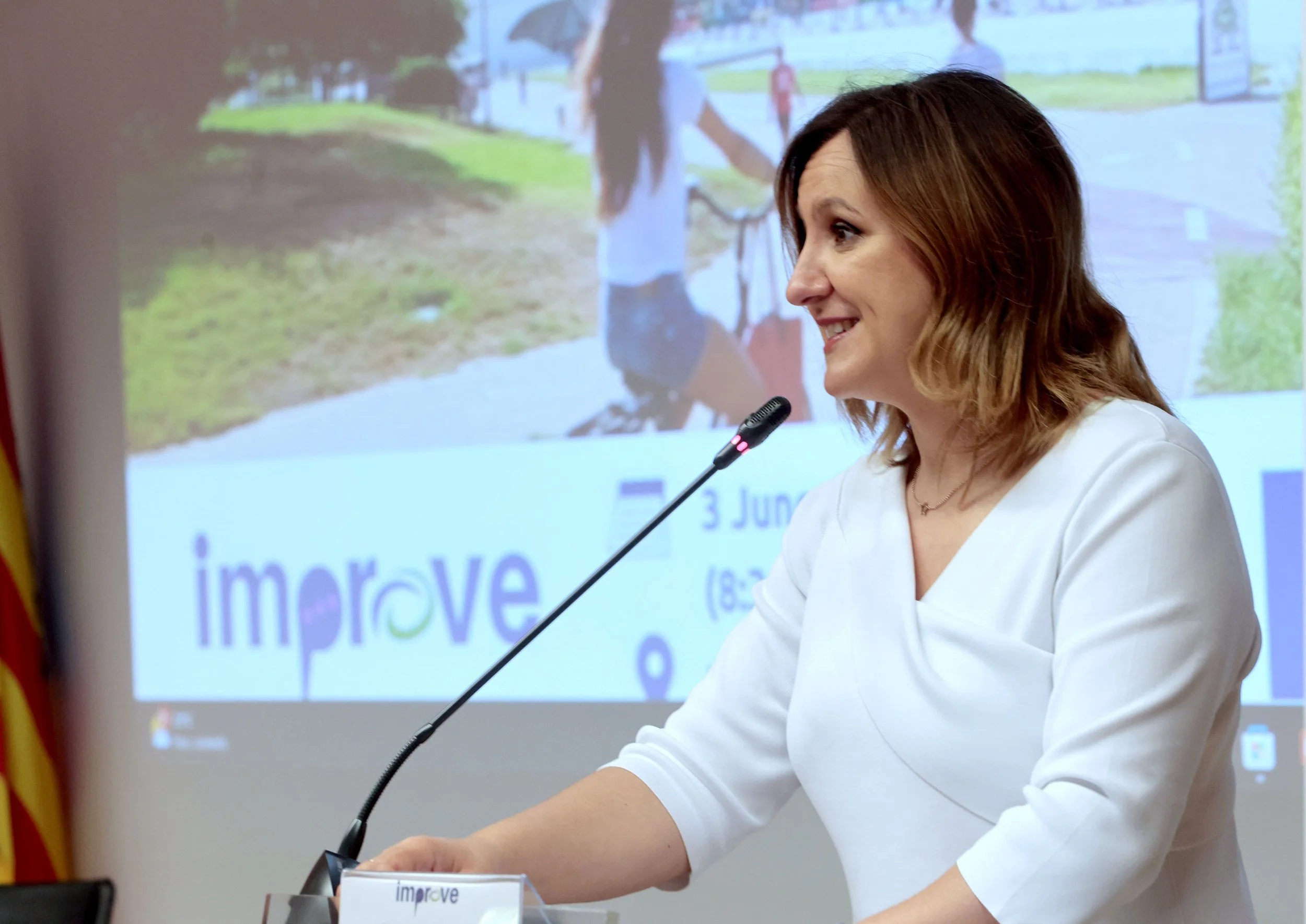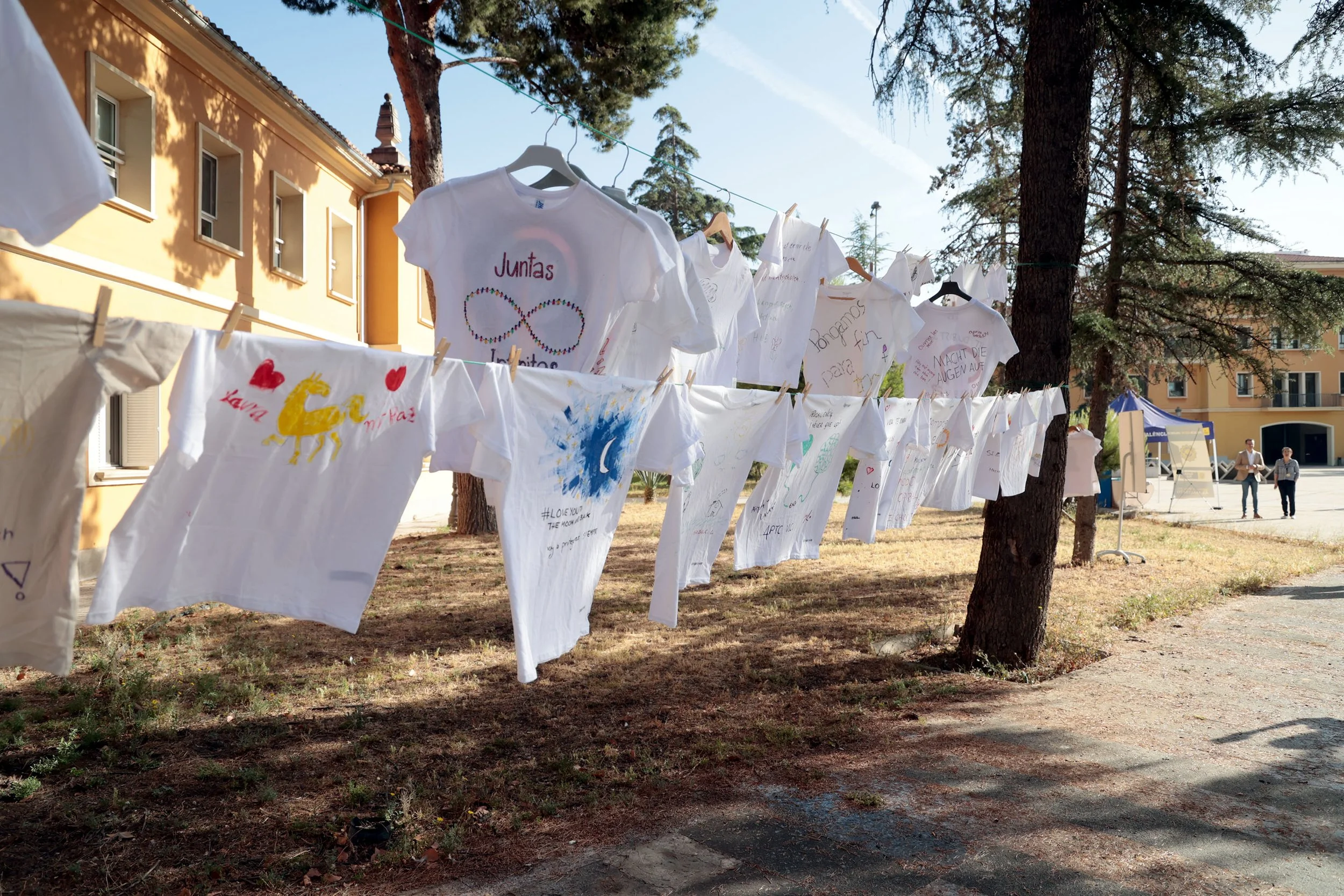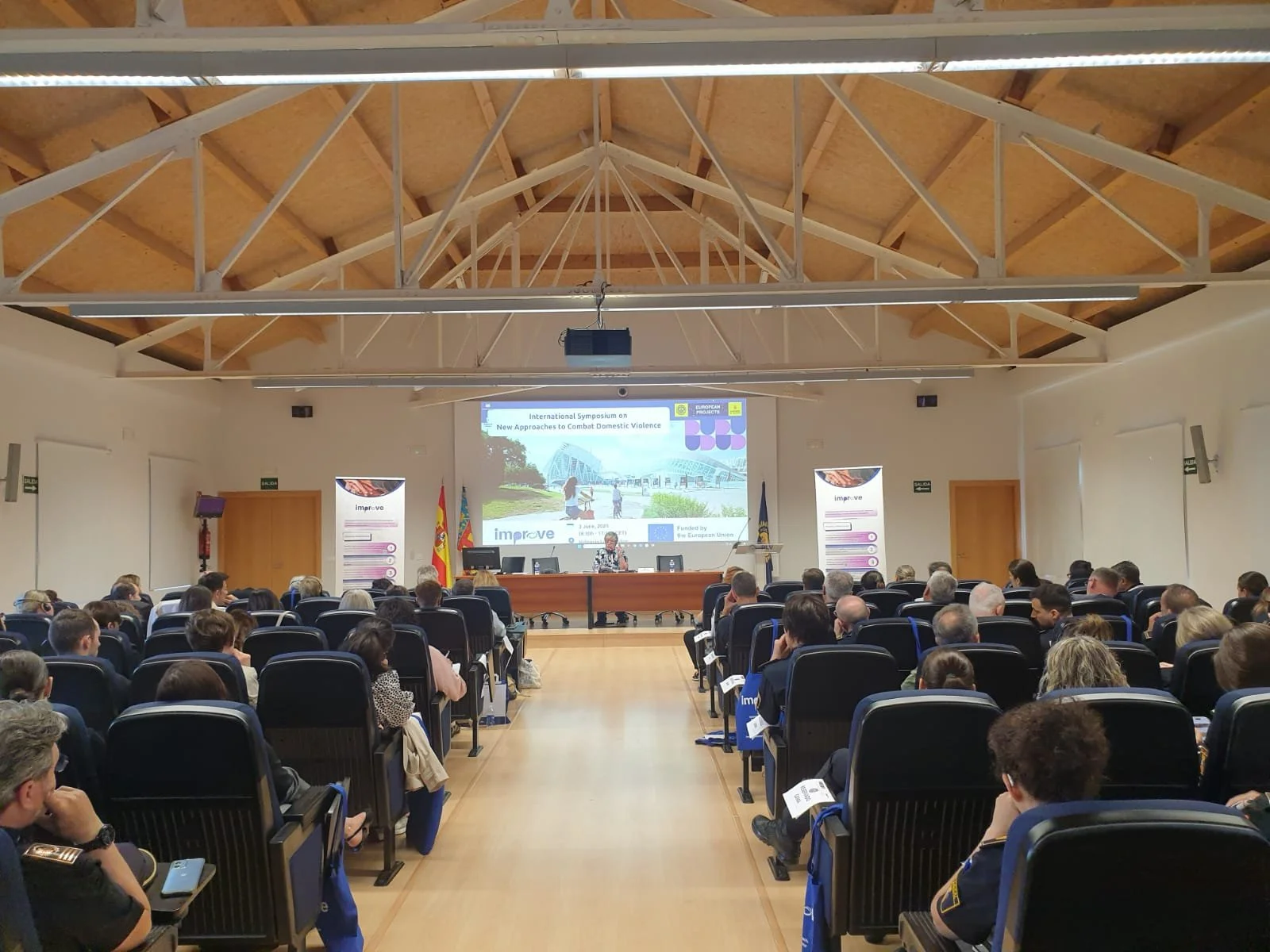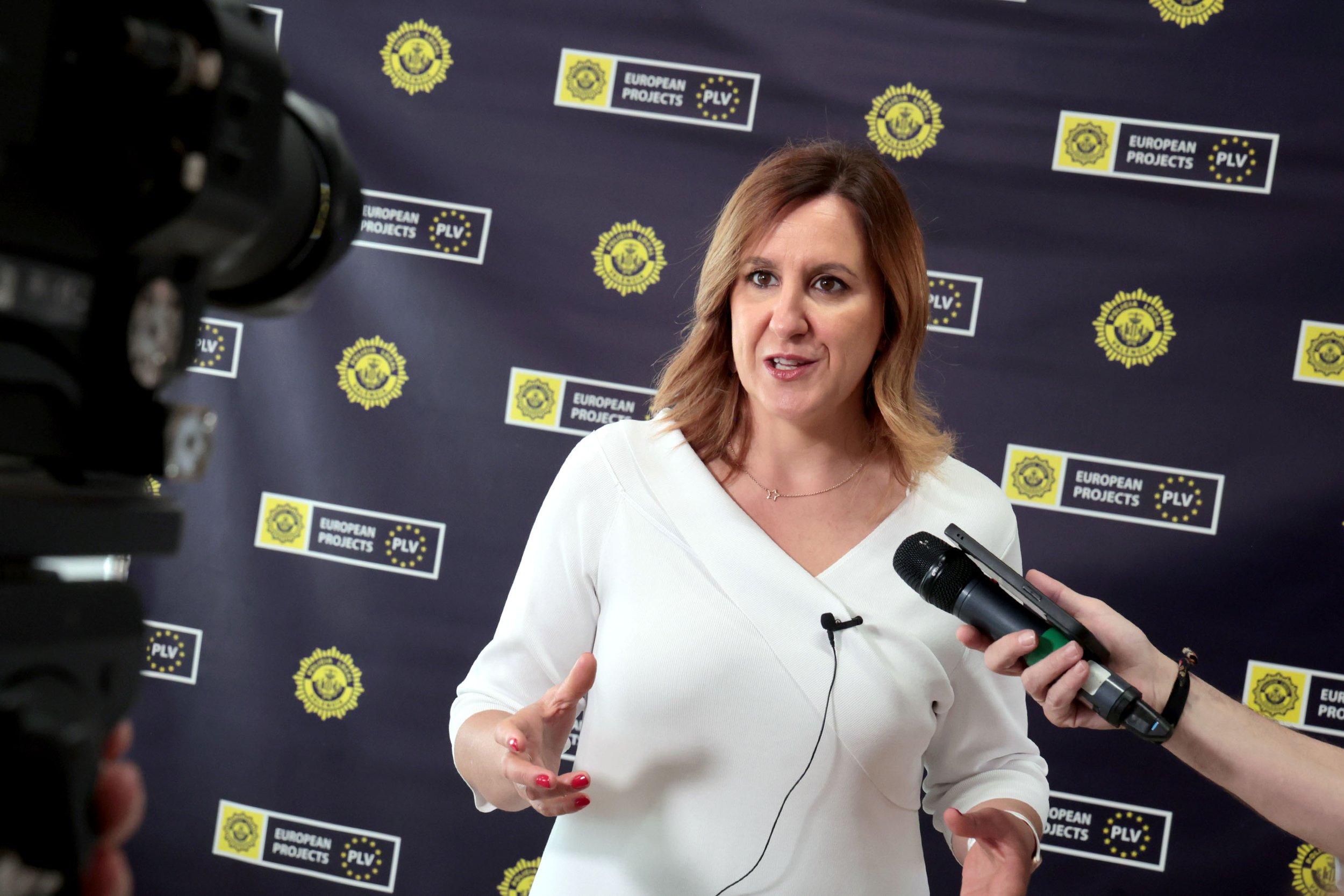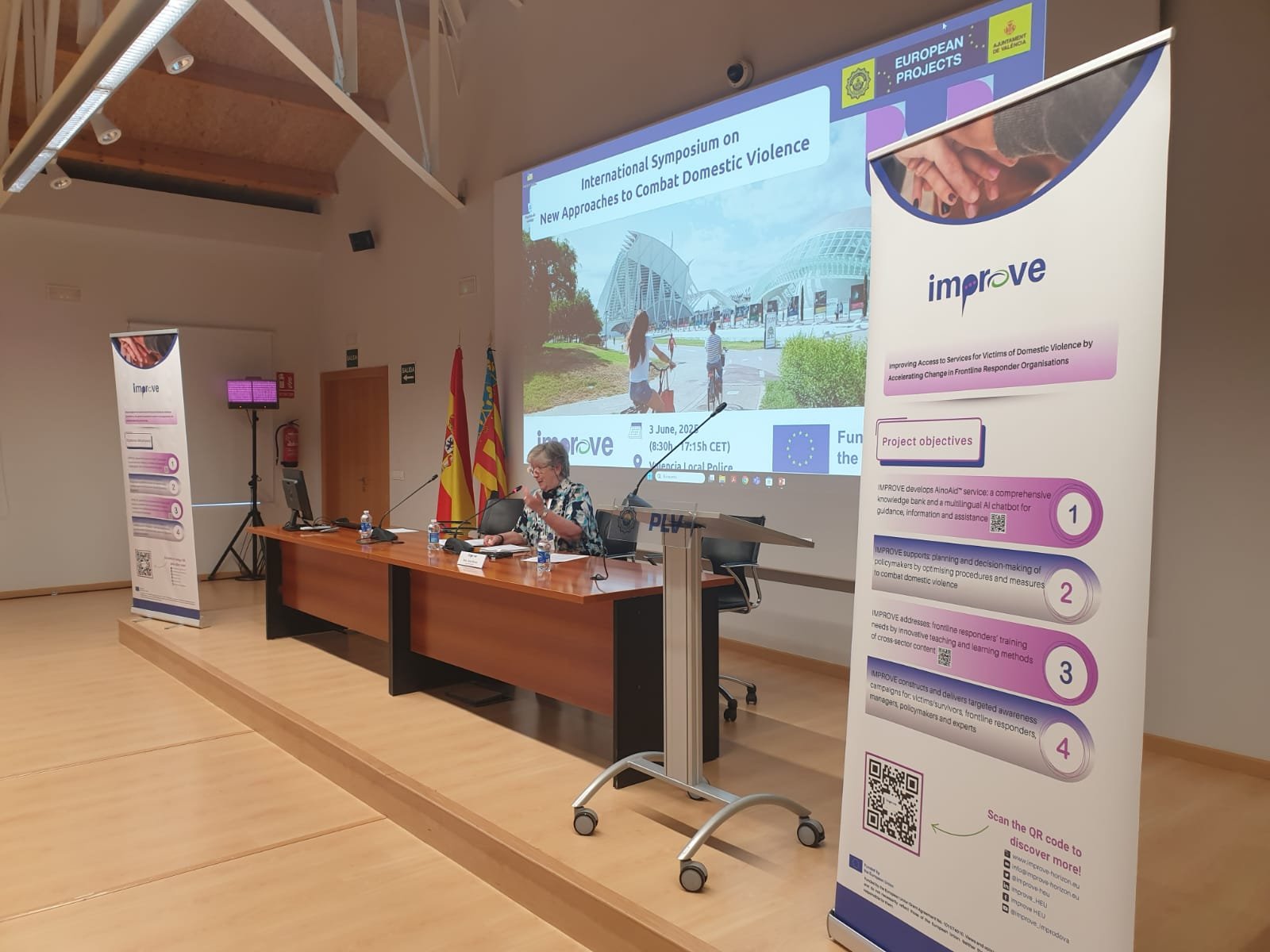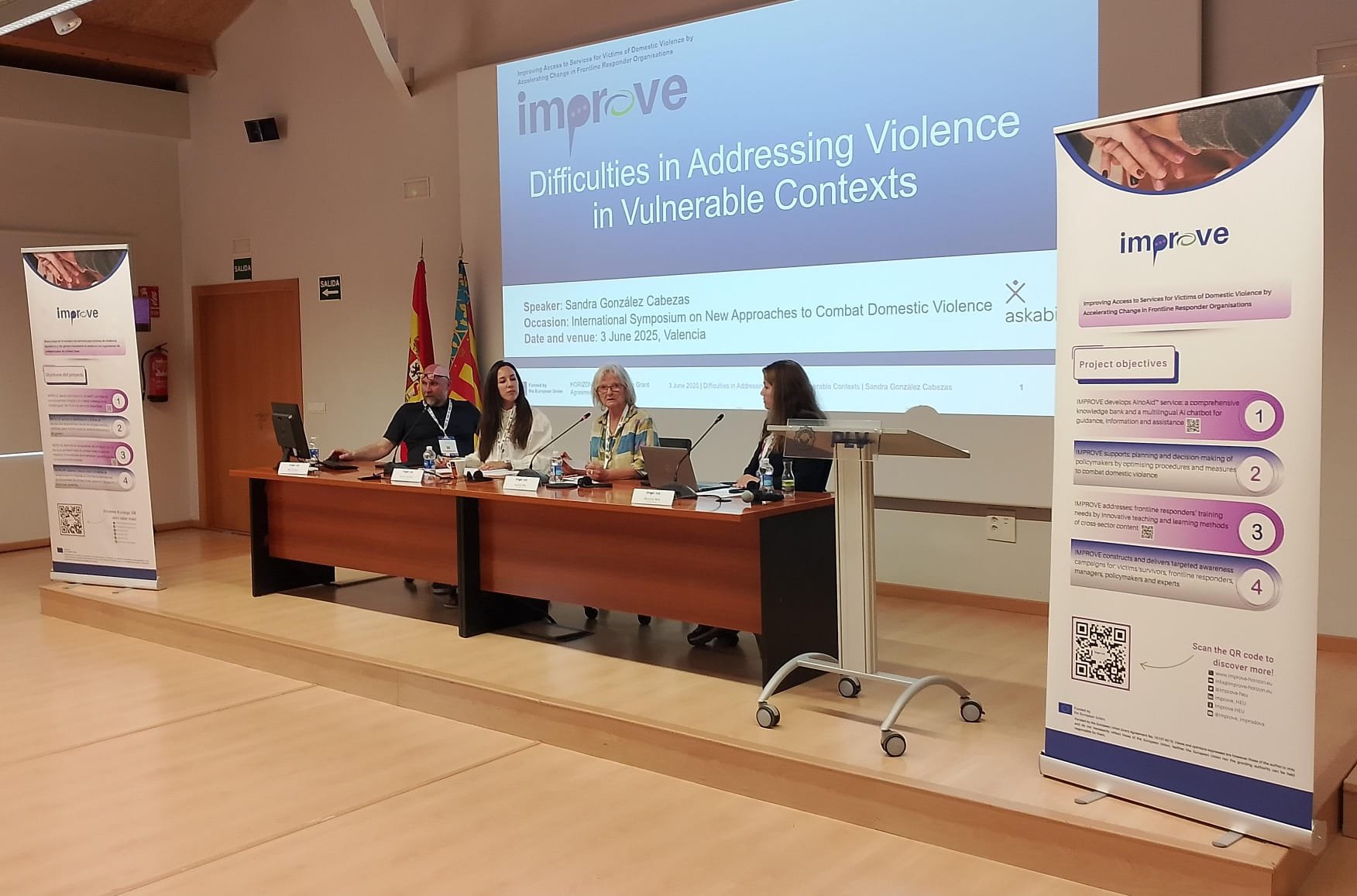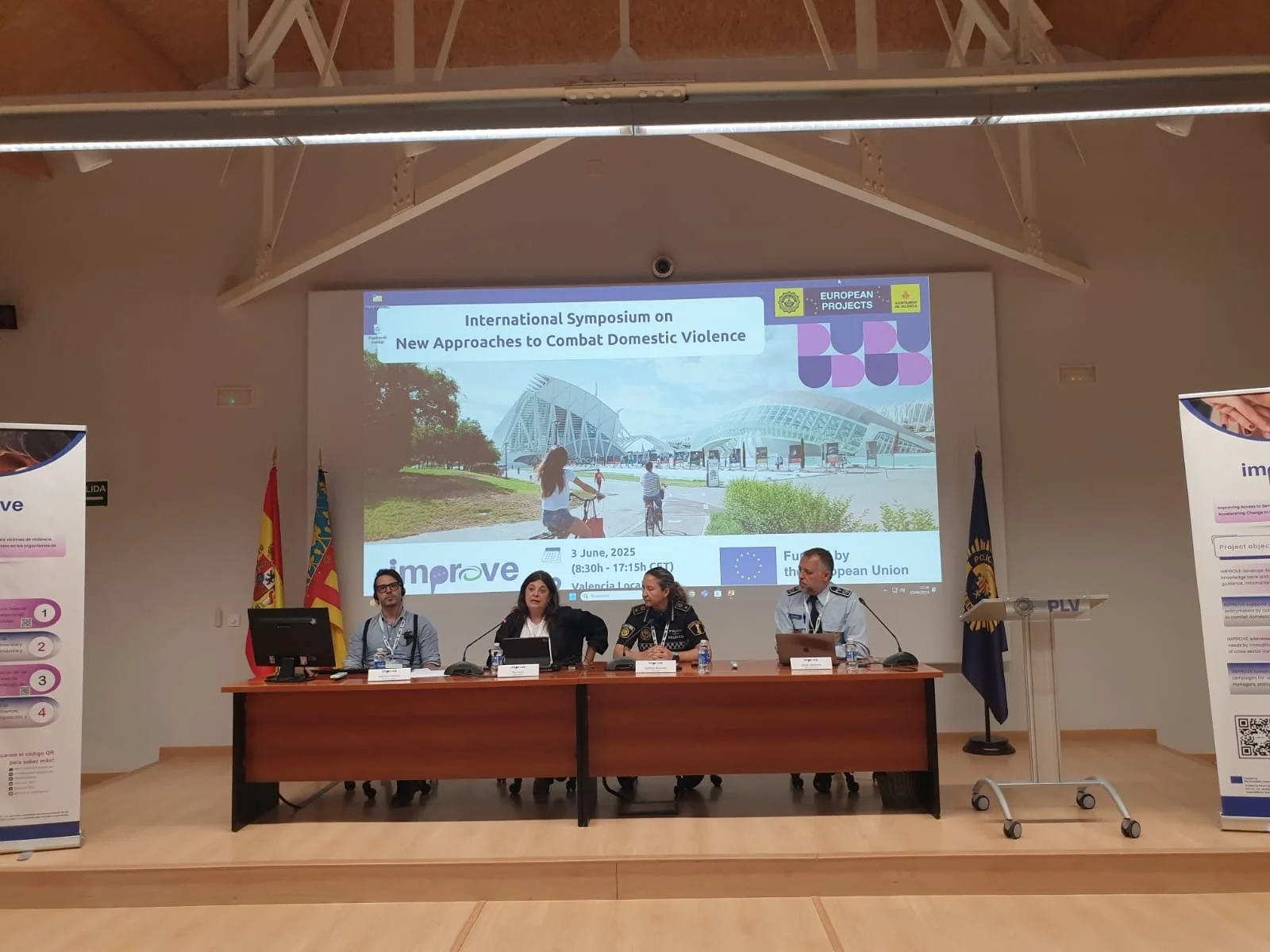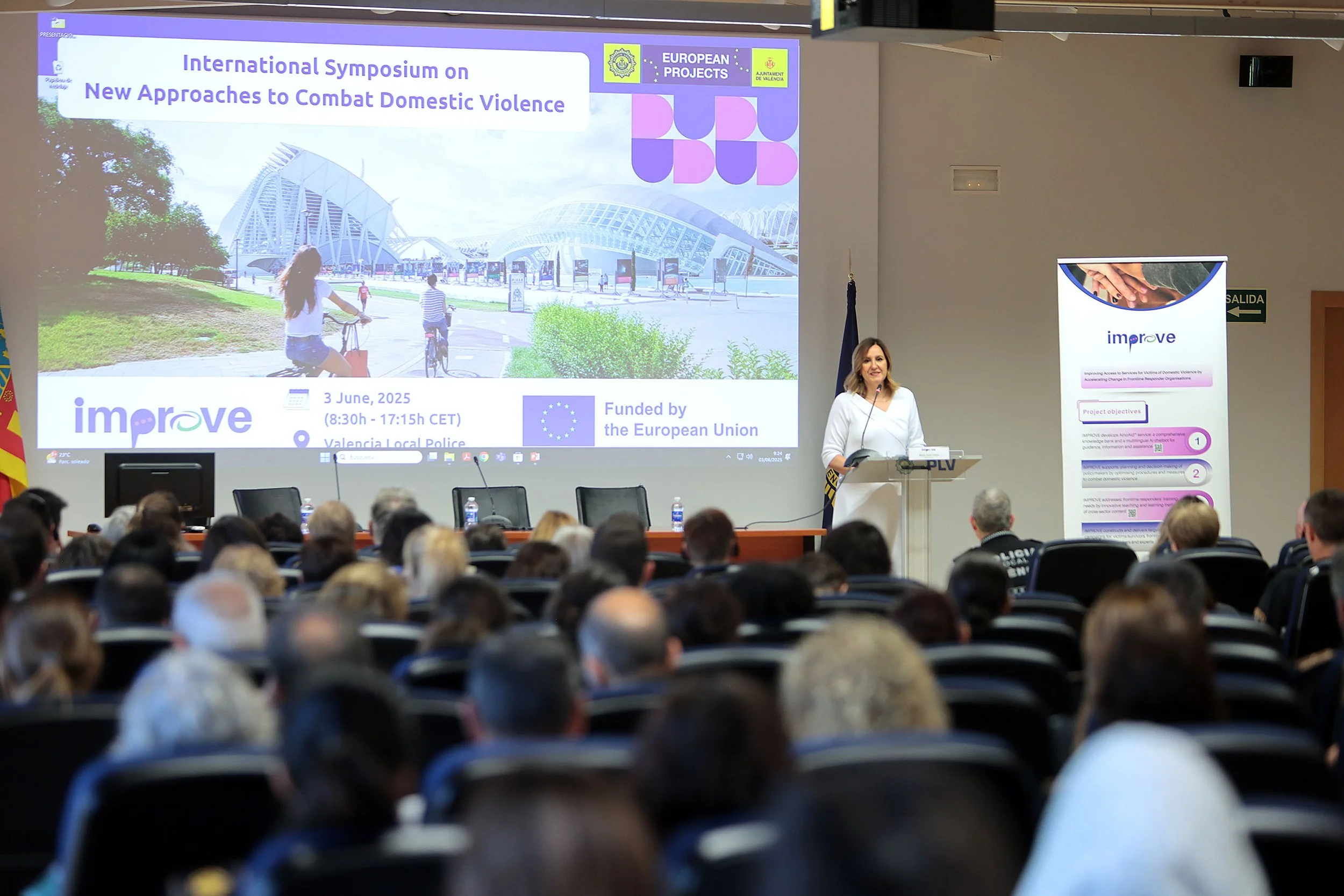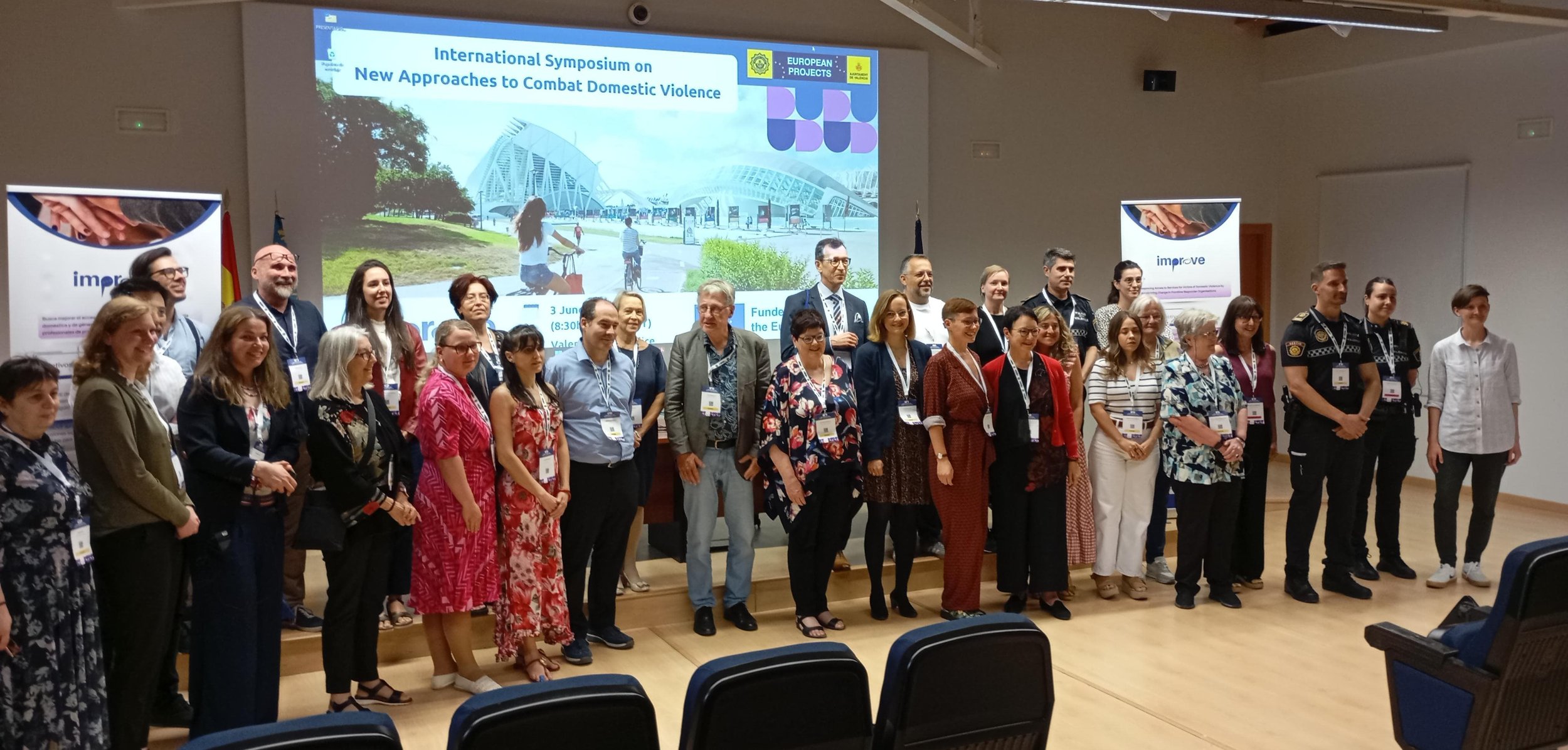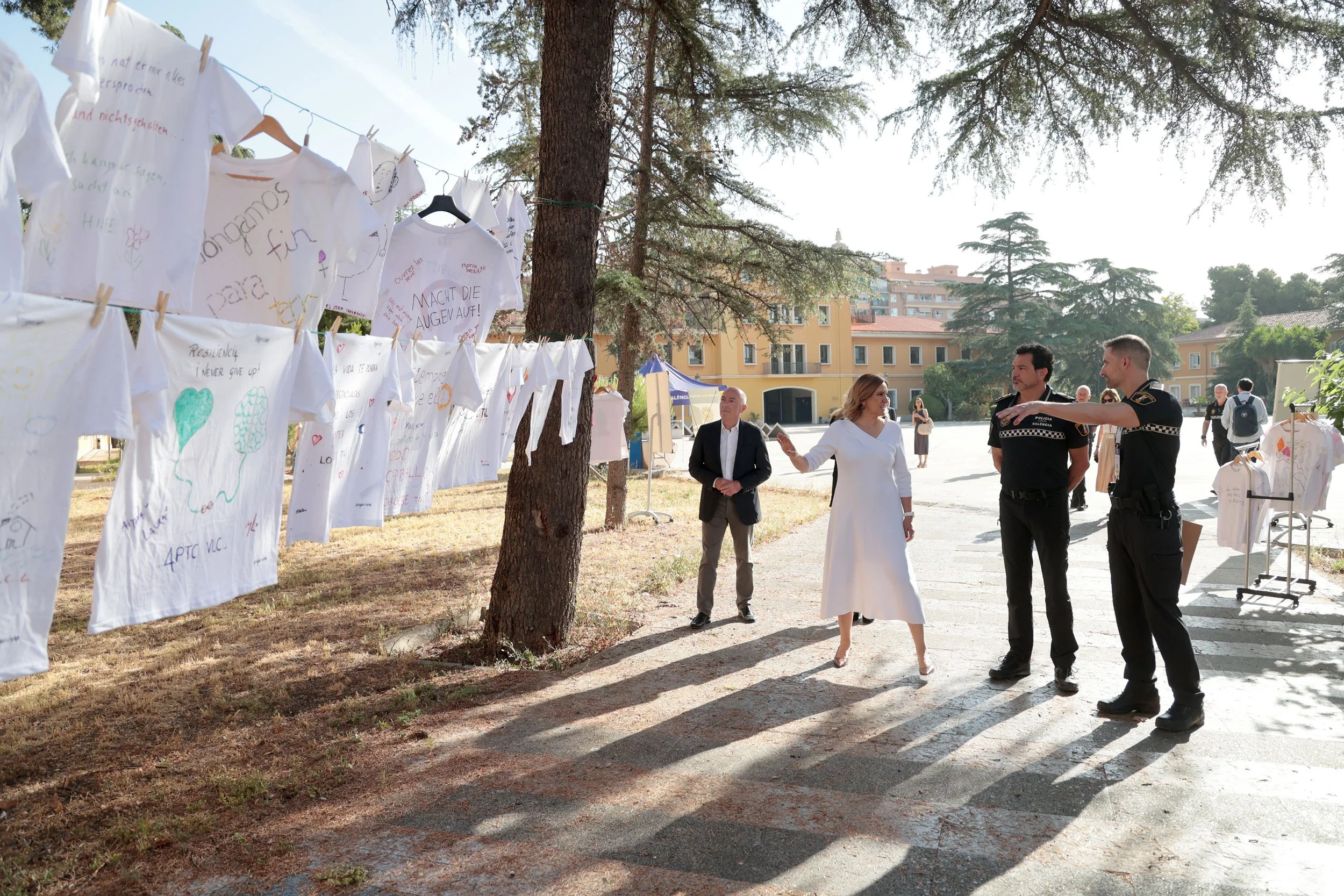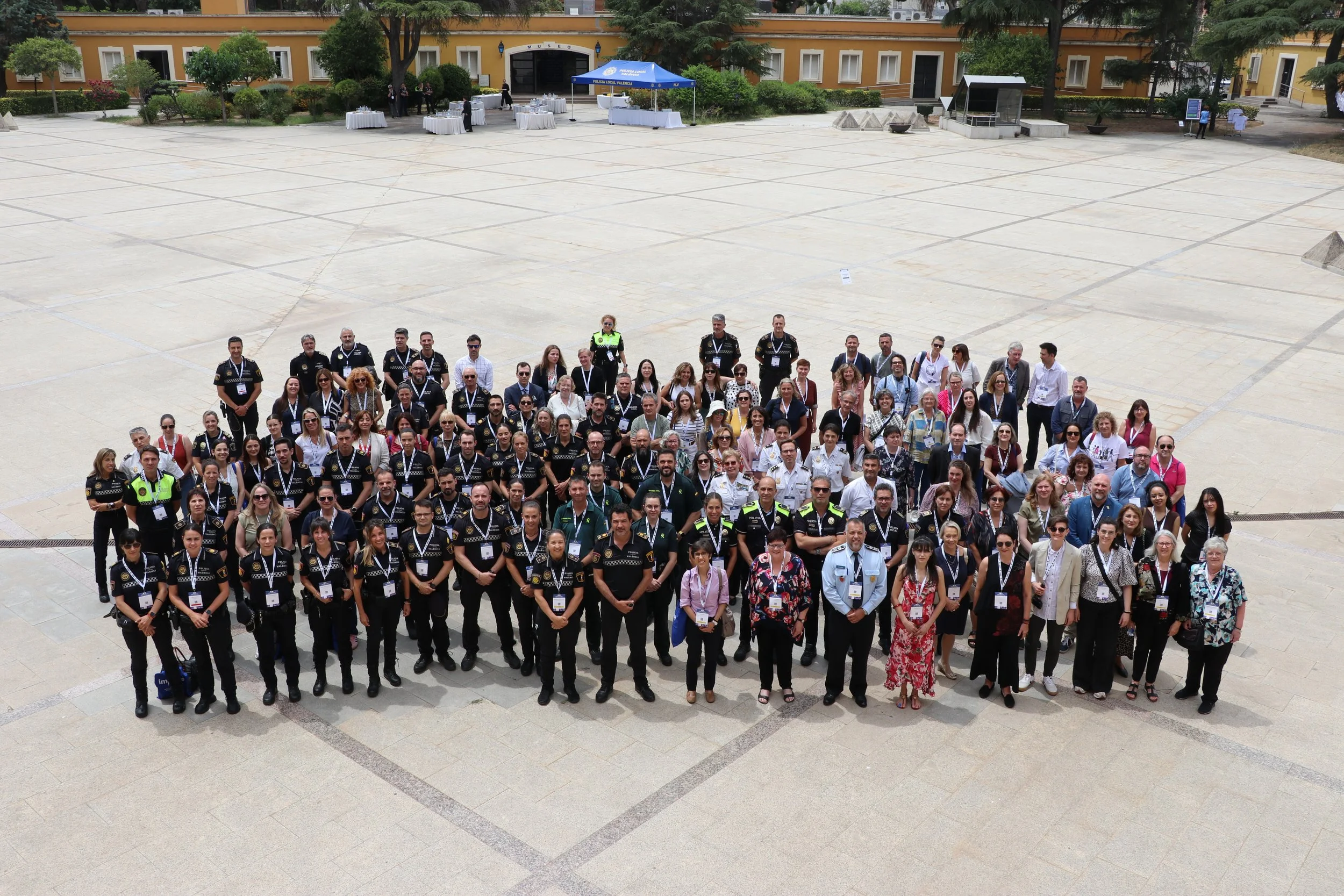29 September 2025
The Path to a Safer Europe: The IMPROVE Symposium in Valencia
In an era where technology touches every aspect of our lives, can it also be a powerful force in the fight against one of society's most enduring problems: domestic violence? On June 3, 2025, the International Symposium on New Approaches to Combat Domestic Violence brought together experts from 17 countries to explore just that and many other questions. This event, a culmination of the three-year IMPROVE project, showcased how tools like the AinoAid™ AI chatbot and innovative training platforms are being developed to support victims and empower first responders. You can also jump to the galery here.
The Future of Combatting Domestic Violence
On Tuesday, June 3rd, 2025, the city of Valencia, became a focal point for a critical global conversation. At the headquarters of the Valencia Local Police (PLV), experts from across Europe and beyond gathered for the International Symposium: New Approaches to Combat Domestic Violence. This event, which blended dynamic pitch sessions, four insightful panel discussions, and a showcase of cutting-edge technology, marked a major milestone in the three-year IMPROVE project, a crucial initiative funded by the European Commission through its Horizon Europe program.
The symposium was a culmination of years of dedicated work, bringing together policymakers, law enforcement authorities, academics, and activists to share diverse perspectives on one of society’s most persistent challenges. The event unveiled some of the project's most significant results: AinoAid™, an AI-powered conversational chatbot designed to offer immediate support to victims, and the comprehensive European Training Platform on Domestic Violence. These innovations represent a leap forward in providing discreet, accessible, and effective assistance to those in need.
“Mathematical algorithms know no empathy!”
Technology, Policy, and the Human Experience
The discussions that followed were as multifaceted as the problem of domestic violence itself. The AinoAid™ service, a key element of the IMPROVE project, was presented by Anna Juusela, CEO of We Encourage, Finland. The website www.ainoaid.fi with the AI based chatbot and curated knowledge base aims to help and support victims of domestic violence as a low-threshold tool to securely seek for information, for safety planning, an appropriate support services. It gives the chance of interactions 24/7. AinoAid™ also addresses professionals and offers educational and concrete guidance on best ways to help. The service is available in Germany, Réunion, Finland, Spain, and Austria up to now.
The conversation about technology continued in Panel Discussion 2, “Technology for whom and by whom – victim support and AI.” Moderated by Estefanía Navarrete of the Valencia Local Police, the panel brought together experts to discuss the increasing threat of cybercrime and the challenges women face in the digital realm. Paz Lloria, a professor at the University of Valencia, highlighted the risk of algorithmic bias, stressing that algorithms must be trained with values that reflect broader societal perspectives. The panel concluded that while digital tools offer valuable opportunities for early detection and support, they also raise critical questions about data privacy and accessibility.
From Domestic Violence Policy to Practice: Action-Driven Measures
A central theme of the symposium was bridging the gap between policy and practical implementation. This was the focus of a presentation on the IMPROVE handbook for policymakers. The handbook, a cornerstone of the project, provides a structured framework for assessing and developing effective responses to domestic violence. Ainhoa Izaguirre-Choperena, Thierry Delpeuch, and Anneli Weiste presented its five core pillars, including Societal Foundation, Implementation Pathways, and Ongoing Development. They emphasized that the handbook will allow policymakers to make data-informed, knowledge-based decisions, ensuring that policies translate into real-world change.
Panel Discussion 3, "Enhancing policy implementation to combat domestic violence," provided a perfect platform for this discussion. Felipe del Baño, Commissioner for the Fight Against Violence Against Women in the Valencian Regional Government, detailed a new institutional approach launched in 2023 that integrates new technologies and establishes new support centres for victims. Laura Albu, an IMPROVE advisory board member, sociologist, and member of GREVIO (Council of Europe), shared insights from her organization’s role in monitoring the implementation of the Istanbul Convention. Gabor Hera, an IMPROVE researcher from Hungary, stressed that domestic violence is a multifaceted issue requiring cross-sectoral collaboration.
The symposium also emphasized the importance of training first responders. Bettina Pfleiderer, Professor at the University of Münster, presented the European Training Platform on Domestic Violence. This comprehensive platform, which is a collaborative effort of three projects (IMPRODOVA, IMPROVE, and VIPROM), offers training materials across various sectors, from law enforcement and healthcare to the social and legal fields. The platform has already piloted 16 training formats and methods, with 323 evaluations, demonstrating its practical value.
“Sustainable progress depends on the establishment of binding standards and legal frameworks to scale up good practices.”
Transforming Policy into Action at the Grassroots Level
In Panel Discussion 4, "Transforming Policy into Action: Preventing Domestic Violence," moderated by Angelika May of S.I.G.N.A.L. e.V., the conversation shifted to real-world application. Måns Enqvist, Chief Superintendent of the Finnish National Police Board and IMPROVE Advisory Board member, candidly discussed the challenges Finland faces in implementing EU directives, such as low police density and limited specialized training. He highlighted how Finland allocates resources to expanding shelter capacity, developing inter-agency cooperation, and providing mandatory education. Marianne Mela, a researcher at the Finnish Police University College, presented findings on how schools can serve as safe spaces for victims of honour-related violence, while Sandra González of the Spanish NGO Asociación Askabide shared insights from her organization's 40 years of supporting migrant women. The panel concluded with a shared recognition that sustainable progress depends on the establishment of binding standards and legal frameworks to scale up good practices.
The event also included a Pitch Session that identified potential areas for collaboration among sister projects. Representatives from ISEDA, VIPROM, and TACTICS presented their own innovative initiatives. These projects, which focus on areas like training police through serious games, strengthening support in the healthcare sector, and enhancing multi-agency cooperation, underscored the broader ecosystem of European research and collaboration dedicated to combating gender-based violence.
The Clothesline Project: A Powerful Visual Testimony
In parallel with the symposium, PLV hosted the Clothesline Projectat the venue, a powerful visual art display that gives voice to survivors of domestic violence and raises awareness about the realities of abuse. This symbolic exhibition toured several European countries participating in the IMPROVE project before coming to Valencia and will culminate in Germany and Greece.
Previous to the exhibition in Valencia, PLV in collaboration with the APTC association held a participatory workshop on 19 May 2025, under the slogan “Each T-shirt, a story” with women survivors of gender-based violence. The goal was to create new T-shirts featuring personal messages and images that reflect their experiences with violence. This artistic activity provided a meaningful platform for survivors to express themselves, raise awareness, and break the silence surrounding gender-based violence.
A Lasting Impact
The symposium was a resounding success, bringing together a diverse and committed audience. A total of 159 people attended on-site, with an additional 175 livestream views from around the world. The event garnered extensive media coverage, both locally and nationally, from outlets like La Razón, Cadena Ser, and Levante TV, underscoring its public relevance.
In the closing remarks, Joachim Kersten, Senior Research Professor at the German Police University, and his colleagues thanked all who contributed to making the event a success. They emphasized the necessity of collaboration and the opportunity the symposium provided to reflect on the status quo of domestic violence management. The event concluded not as a final chapter, but as a new beginning, charting a path for future research and action. The legacy of the IMPROVE project and the Valencia symposium is a powerful testament to the fact that by combining human empathy, innovative technology, and unwavering political will, we can build a safer, more just society for all. The event’s comprehensive dissemination activities, from the strategic communication plan to the production of a short video summary, ensure that its powerful message will continue to resonate long after the final panel.
A High-Level Dialogue for a High-Stakes Issue
The symposium’s significance was underscored by the presence of high-level institutional figures from the Valencian Community, including María José Catalá, Mayor of Valencia, and Ángel Albendín, Chief Constable of the Valencia Local Police. Their official welcome remarks set a tone of commitment and urgency. The day’s keynote speeches, delivered by Lisa Collste, Legal Officer at the Directorate-General for Justice and Consumers of the European Commission, and María Teresa Nevado, Secretary-General of the European Women’s Lobby in Spain, provided a powerful opening.
Lisa Collste’s address focused on the new EU directive on combating violence against women and domestic violence, a cornerstone of the European Union’s strategy. She meticulously detailed its central chapters and articles, emphasizing the need to criminalize forms of violence at an EU level, protect victims, and ensure easier access to justice. Her message was clear: a comprehensive set of support measures, meaningful prevention efforts, and efficient multi-agency cooperation are not just goals, but mandates. She stressed the importance of robust training for all professionals who interact with victims—from police officers to judges—highlighting that “a good police training is necessary to collect evidence immediately.”
María Teresa Nevado delved into the risks and biases of artificial intelligence for women. She presented findings from a study she coordinated, raising crucial questions about whether the interests of women are adequately considered in the development of algorithms. With a stark reminder that “Mathematical algorithms know no empathy,” she highlighted the potential for new forms of cyber violence and the negative impact on children and young people. María Teresa Nevado advocated for the development of pioneering projects that teach the responsible use of AI and called for effective control of algorithmic bias, emphasizing the role of the EU's "AI office" in regulating high-risk systems.
About the authors
Susana Sola holds a degree in Industrial Relations and Human Resources from the University of Valencia and has extensive professional experience in the Valencian Public Administration and European affairs.
From December 2003 to September 2007, she worked as an assistant to the General Director of the Valencian Regional Office in Brussels, where she gained in-depth knowledge of European institutions, lobbying activities, and regional delegations.
Between October 2007 and February 2012, she joined the European Projects Department of the Fundación Comunidad Valenciana – Región Europea in Valencia, promoting the participation of Valencian civil society in EU initiatives and programmes, while managing European projects involving the organisation of conferences and meetings, dissemination activities, and financial reporting.
She currently serves as a civil servant in the European Projects Department of the Valencia Local Police, with a main focus on projects addressing gender-based and domestic violence, including HERA, WomPower, HASP, and currently IMPROVE.
